-
 Published: May 8, 2023
Published: May 8, 2023
-
 11 min. read
11 min. read
-
 Abby Fields
Abby Fields Branded Content Specialist
Branded Content Specialist
- Abby is a data-driven content marketer with certifications in inbound marketing and content marketing. She’s written hundreds of articles covering digital marketing topics — a few of her specialties include first-party data, marketing and data analytics, marketing strategy optimization, and SEO. When she isn’t writing or optimizing content, Abby loves to spend time reading the latest mystery novel, having movie marathons with lots of snacks, and jamming out to Shania Twain.
What is SEO in digital marketing?
SEO in digital marketing is a strategy that focuses on your website’s presence in the search results. It involves various techniques to help you improve your rankings.
Search engine optimization (SEO) is a critical component of your digital marketing strategy. It can help more members of your target audience discover your business online, so you can expand your reach and increase your revenue.
On this page, we’ll cover the basics of SEO and answer some common questions, including:
- What is SEO in digital marketing?
- How does SEO in digital marketing work?
- How do search engines work?
- What is the difference between organic search vs. paid search?
- How does SEO in digital marketing compare to SEM and PPC?
- What are the benefits of SEO in digital marketing?
- What are the types of SEO in digital marketing?
So, just keep reading to get all of your questions answered!
P.S. Do you want the inside scoop on all things SEO and digital marketing from award-winning experts? Then sign up for our newsletter, Revenue Weekly, to get expert SEO and digital marketing advice sent straight to your inbox for free!
SEO Pricing: How Much Does SEO Cost in 2023?
Discover how much SEO costs, and why, in this free guide written by our expert team.
Download PDF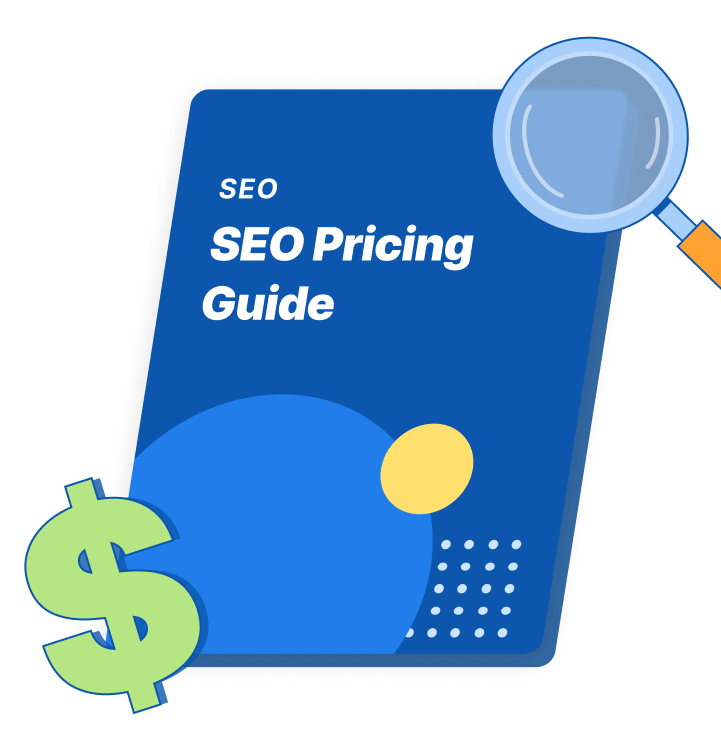
What is SEO in digital marketing?
SEO in digital marketing is a strategy that focuses on your website’s presence in search results on search engines like Google. It involves using various techniques to improve your website to help both search engines and consumers better understand your website.
How does SEO in digital marketing work?
Now that you know the answer to the question “what is SEO in digital marketing,” let’s go over how it works.
When you implement an SEO strategy, you optimize your website to show up in the search engine results pages (SERPs) for keywords and phrases related to your business. You’ll also submit your website URLs to Google (and other search engines) so they can show up in the SERPs.
Keywords are the words and phrases your target audience searches for online. For example, if your business sells running sneakers, your audience may search using keywords like “running sneakers” or “women’s running sneakers” and other variations.
Search engines like to provide the best experience for their users, which is why they have hundreds of ranking factors that determine your spot in the SERPs. Search engines want to show users the best websites in the results to provide them with the information they need.
With SEO, you’ll implement techniques that improve your website’s user experience to ensure that your site gives your audience answers to their queries. A few examples of SEO techniques include:
- Implementing responsive design to make your website friendly for mobile users
- Improving your website navigation to ensure users can easily navigate your site
- Creating custom content that answers users’ questions
- Inserting keywords and phrases throughout your site pages and content
- And more
When you implement an SEO strategy, your improvements will send positive signals to search engines that your website provides value to users. As a result, search engines will rank your website higher in the SERPs.
Achieving a top spot in the search results is essential because 75% of users don’t click past the first page of results.
How do search engines work?
The hub of SEO — the search engine framework — is the key to understanding why SERPs showcase certain pages over others. Search engines are intricate systems that study all the websites across the Internet and organize the information for you.
So, how do search engines like Google, Bing, and Yahoo digest such an immense amount of data? Search engines go through three steps — crawling, indexing, and ranking — to yield the strongest results.
The anatomy of a search result
Let’s start by diving into what a search engine results page looks like. A SERP consists of paid and organic results.
Paid results consist of websites who’ve paid Google to appear at the top of the search results. You can idenitfy them by the “sponsored” tag that appears above the title.
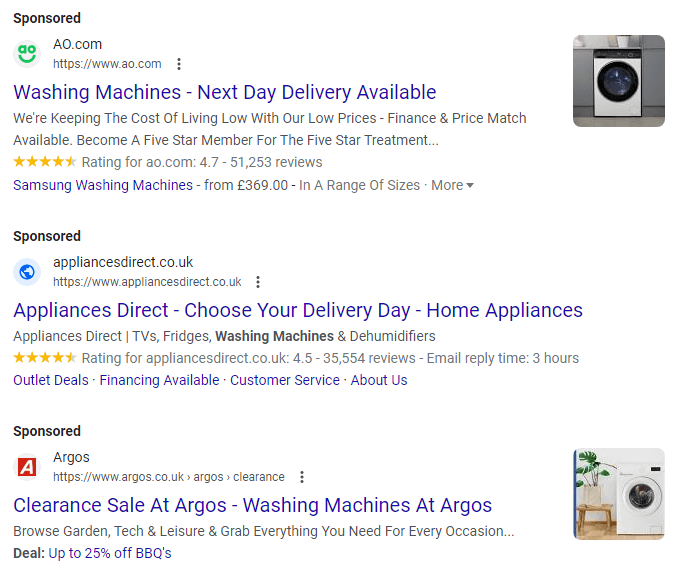
After the three paid results, you’ll see the full list of organic results that make up the rest of the page. These results consist of websites who haven’t paid to appear in the results. Google picked these websites to appear based on a number of ranking factors, like relevance, keyword targeting, user experience, and more.
Crawling and indexing
Search engines use special bots or search crawlers to inspect all the nooks and crannies of the Internet.
They find websites by “crawling” from URL to URL, and as they move through pages, the bots scrutinize the main text and supplementary parts on the page.
Search bots collect these details in a comprehensive index, and they’re sorted into categories based on the title, URL, media, and text. This pool of websites gets dipped into later when someone searches related words.
The crawling mechanism follows the links on pages too, which act as trails across the web. If your website isn’t easy to locate by the crawlers, they can remain invisible to search engines and left off the index.
Ranking
The contents of the index then serve as candidates for searches, and further algorithms determine how well it matches search terms or “keywords.”
If the page is informative, reliable, and meets a variety of other standards, it has a better ranking.
Do you need help ranking higher in your industry’s keywords? WebFX has enhanced SEO for many businesses and steered high volumes of traffic to their websites. In fact, we’ve generated 24,859,684 leads during the last 5 years. Contact us online or call us at 888-601-5359.
SEO Pricing: How Much Does SEO Cost in 2023?
Discover how much SEO costs, and why, in this free guide written by our expert team.
Download PDF
What is the difference between organic search vs. paid search?
When it comes to understanding SEO in digital marketing, it’s essential to understand organic SEO and paid search, and how they differ.
The difference between organic search and paid search is organic search is free and paid search is paid.
When you submit a search to a search engine, the results display paid and organic listings — paid listings will have the word “Ad” attached to them. Click on a paid listing and the advertiser will pay for that click. Click on an organic listing and the website owner will pay nothing.
SEO is all about improving your rankings in the organic search results.
While paid search is valuable and has its uses, organic search’s return on investment (ROI) makes SEO a smart investment for any business. That’s why it’s important to learn what SEO is and how SEO works because you can use that knowledge to improve your site’s search result rankings and traffic numbers.
How does SEO in digital marketing compare to SEM and PPC?
While exploring SEO strategies, you might come across the terms search engine marketing (SEM) and pay-per-click (PPC) advertising. If you’re wondering what these terms are and how they differ from SEO, we’ve got you covered.
SEO vs. SEM
Like we discussed above, SEO focuses on improving your website’s rankings in the organic search results. These are the results that display below the sponsored (paid) results.
SEM, on the other hand, is an umbrella term that focuses on improving your rankings in the both the organic and paid results. As a result, if you implement a SEM strategy, you’ll find yourself launching ads that appear at the top and bottom of the search results.
SEO vs. PPC
PPC is a digital advertising strategy that involves launching ads on search engines like Google. It’s often referred to as paid search.
With PPC, you’ll bid on keywords and phrases that you want your website to appear for in the search engine results.
So, PPC focuses on the paid side of search engine marketing while SEO focuses on the organic (free) side.
What are the benefits of SEO in digital marketing?
SEO is an essential strategy that can help your business grow and reach new heights. Check out more benefits of SEO in digital marketing below:
- Boost online visibility: SEO helps you boost your online visibility and brand awareness. When you implement an SEO strategy for your business, your website will appear higher in the search results. That means more members of your target audience discover your business online.
- Increase website traffic: You can drive more traffic to your website when you increase your rankings in the SERPs. As a result, more users visit your website, read your content, and check out your products and services to increase sales and revenue for your business.
- Stand out from competitors: SEO enables you to outrank your biggest competitors in the search results. That means you can boost your credibility as an expert in your field to outshine your competitors and attract new customers.
SEO is a valuable strategy that enables you to acquire new customers and continuously promote your products and services online to drive more sales and revenue for your business.
What are the types of SEO in digital marketing?
Before you start implementing an SEO strategy for your company, it’s essential to first understand the different types of SEO, also known as the pillars of SEO.
Here are the four types of SEO in digital marketing:
1. On-page SEO
What is on-page SEO? On-page SEO refers to optimizations that take place directly on your website to improve your SEO. With on-page SEO, you focus on ensuring that your website is easy to use and provides value to users by answering their questions and giving them solutions to their queries.
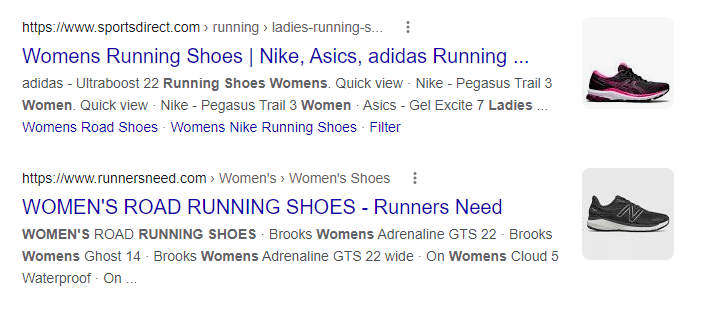
Here are a few elements you can focus on optimizing with on-page SEO:
On-page SEO enables you to improve your website to help users and search engines better understand your website. For example, by optimizing your titles, you can inform search engines and users about your page’s topic. As a result, you can increase your rankings and encourage users to click on your site.
2. Off-page SEO
Off-page SEO refers to optimizations that take place outside of your website. With off-page SEO, you focus on your website’s authority. While your website or domain authority isn’t an official Google ranking factor, it can help boost your rankings by creating a site with valuable content that people and websites link back to.
This process can involve earning links from other websites, shares on social media platforms, and other mentions of your website across the Internet. Off-page SEO can include:
- Creating accurate, valuable, and high-quality content
- Sharing your content on social media
- Connecting with influencers
- Reaching out to other websites to host something that you’ve written
Your authority can determine whether search engines and users view your business as an expert in your field. And a high authority will help your online reputation and search rankings blossom.
3. Technical SEO
Technical SEO refers to optimizations that make your website easy for search engine crawlers and users to use and understand. Search engine crawlers index pages and websites for search engines. In other words, search engine crawlers help search engines store your page and website data to use for future searches.
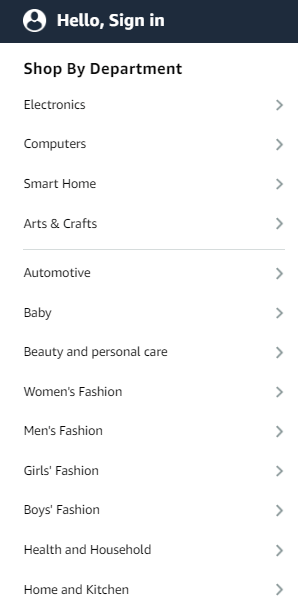
With technical SEO, you focus on optimizing the back-end of your website, such as your:
- Page load speed
- Mobile-friendliness
- Navigation
- And more
Your page design, navigation, and loading speed impacts how easily your audience and crawlers can use and understand your website. When your website loads quickly and ensures that users can easily find the information they need, you can help your site rank higher in the SERPs.
4. Content
The last type of SEO is content. Content is the bread and butter of your website. It gives users and search engines essential information about your business, such as what you do and what types of products and services you offer.

Creating content also enables you to insert high-value keywords throughout your site to increase your opportunities to rank higher in the search results. There are several types of content you can create for your business, including:
- Blog posts
- Informative articles
- Detailed guides
- Videos
- Infographics
- And more
Your content works hand-in-hand with your SEO strategy to promote your products and services to more users online so you can drive more sales and revenue for your business.
Looking for an all-in-one SEO audit tool? You’ve found it.
SEO Checker provides data on key metrics to give you:
- Complete SEO score
- Content Grade
- Site Speed Analysis
- and more.

Check your website’s SEO performance and receive a comprehensive report for free with SEO Checker
Do you want to check your website’s current SEO performance for free? Would you like to receive a comprehensive SEO report with data-driven recommendations for improvements to boost your search result rankings? That’s where our free tool, SEO Checker, can help!
Simply enter your website URL and then click enter to check your site’s performance in search engines like Google in seconds. Plus, you’ll receive a detailed report complete with your SEO score and suggestions for optimizations you can make to drive even better results for your business.
Try SEO Checker today for free!
-
 Abby is a data-driven content marketer with certifications in inbound marketing and content marketing. She’s written hundreds of articles covering digital marketing topics — a few of her specialties include first-party data, marketing and data analytics, marketing strategy optimization, and SEO. When she isn’t writing or optimizing content, Abby loves to spend time reading the latest mystery novel, having movie marathons with lots of snacks, and jamming out to Shania Twain.
Abby is a data-driven content marketer with certifications in inbound marketing and content marketing. She’s written hundreds of articles covering digital marketing topics — a few of her specialties include first-party data, marketing and data analytics, marketing strategy optimization, and SEO. When she isn’t writing or optimizing content, Abby loves to spend time reading the latest mystery novel, having movie marathons with lots of snacks, and jamming out to Shania Twain. -

WebFX is a full-service marketing agency with 1,100+ client reviews and a 4.9-star rating on Clutch! Find out how our expert team and revenue-accelerating tech can drive results for you! Learn more
Try our free SEO Checker
Boost your site’s search performance with our free SEO Checker. Analyze your website for optimization tips on titles, headers, content, speed, and more. Get a free report now to enhance rankings on Google, Bing, Yahoo, and beyond!
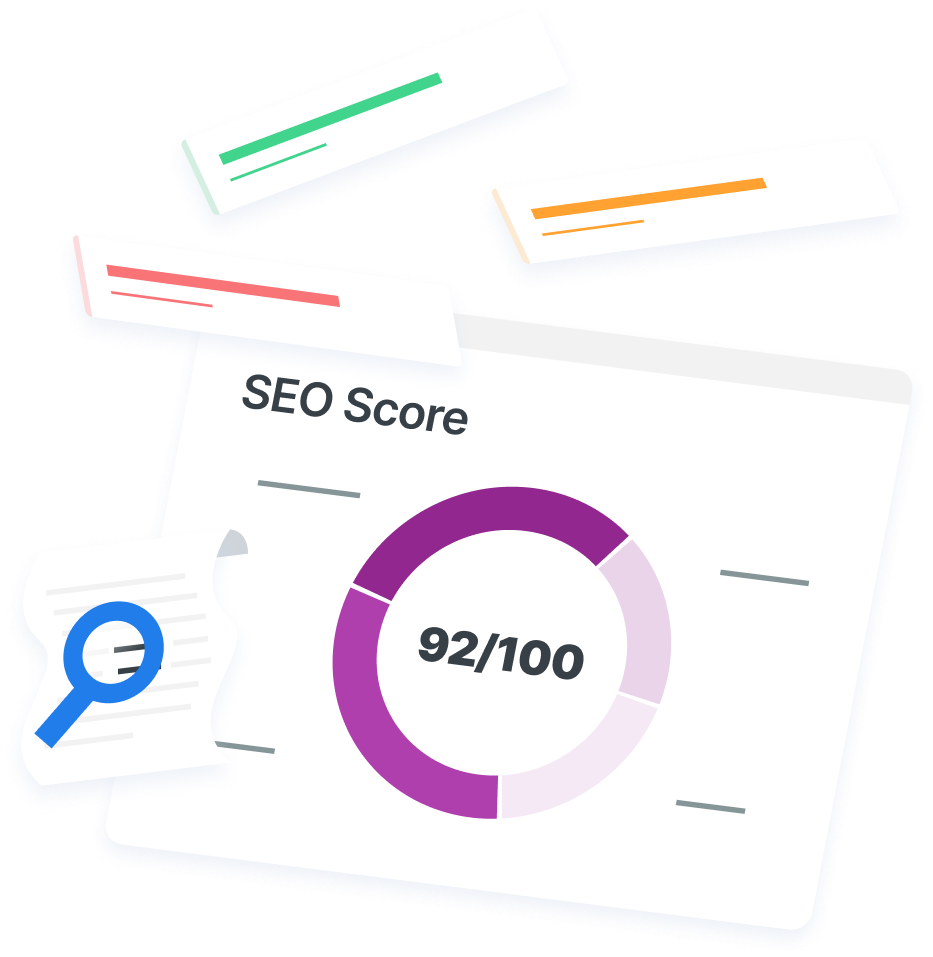
Table of Contents
- What is SEO in Digital Marketing?
- How Does SEO in Digital Marketing Work?
- How Do Search Engines Work?
- Organic Search vs. Paid Search
- How Does SEO in Digital Marketing Compare to SEM and PPC?
- What Are the Benefits of SEO in Digital Marketing?
- What Are the Types of SEO in Digital Marketing?
- Check Your Website’s SEO Performance and Receive a Comprehensive Report for Free with SEO Checker

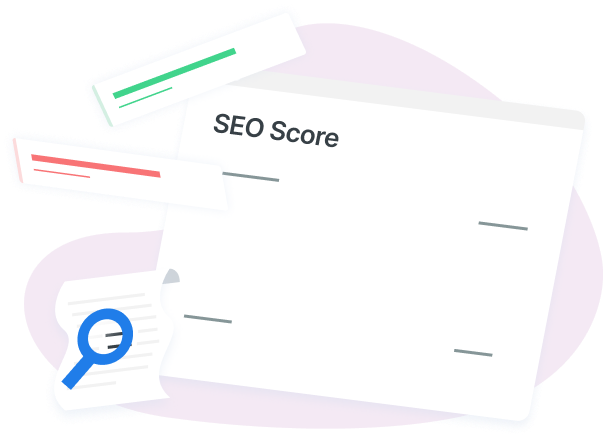
How Is Your Website’s SEO?
Use our free tool to get your score calculated in under 60 seconds.
Try our free SEO Checker
Boost your site’s search performance with our free SEO Checker. Analyze your website for optimization tips on titles, headers, content, speed, and more. Get a free report now to enhance rankings on Google, Bing, Yahoo, and beyond!







